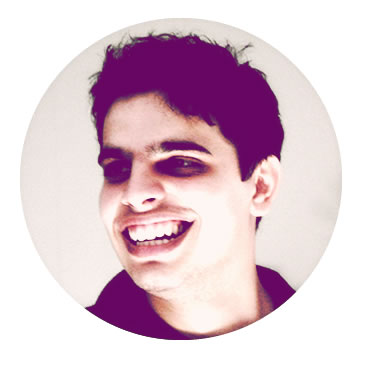My dad, a high-school history teacher, discovered "fake news" in early 2000s. He was always a big believer in self-study and gave his students assignments to encourage this behaviour. The assignment that sparked his observation asked the students to come up with a general characterisation of Mao's regime. He gave this assignment prior to any actual teaching about the period, expecting his pupils to research the period using the Internet. Most of the papers were exactly what you would expect, reproducing the main accepted narrative of communism gone wrong, persecution and death. As with these home-works originality was never a strong mark, a lot of the papers being copy-pasted from various websites.
However one student stood up, with an essay that presented Mao as the world's greatest hero of the century. No words about any of the atrocities or about the politics of fear that are still felt by the Chinese people. To his surprise, the student happened to be among those gifted in sciences, a genius in math and a skilled computer programer. You may think that my father had the luck to stumble over a contrarian who wanted to spark a debate to stand out. But the reality is much more unremarkable and conventional: this pupil just copied his piece from the "wrong" place. Some may remember that in the early days the Internet lacked few "trustworthy" sites, and search in the pre-Google era could drift you to some dubious websites. And some of that disputable content “miraculously” transferred onto his paper.
The story is old but relevant as information is easily obtainable but the fake news are getting worse. Although the web evolved tremendously over the last 20 years, we can see how our friends feel no embarrassment to share stories that are as misleading and fabricated as the paper glorifying Mao.
I remember my dad remarking at the moment that without any foundational knowledge the information explosion enabled by the Internet will only amplify people’s biases, while making us stupider and sure of ourselves. Because when we have no elementary information understanding of the world, any data point is as valid as the other.
Which leads me to an aha realisation: A person’s ability to discern the truth is directly proportional to his knowledge.
Education and wall building
We have a long history of building walls to protect us against threats. The Chinese built a huge wall to protect themselves against Mongol invaders. Hadrian, the Roman emperor from the early 2nd century, also practiced a policy of protectionism. Similar policies are regaining traction nowadays. More and more of us look at wall-building as the solution that will protect us against immigrants. But also against incorrect news or misleading information. I notice with worry that the same people who criticise tighter border controls are now demanding media providers or social networks to regulate speech by offering mechanism that will filter out fake news. But who decides what is fake is what is not? Is fake news such a big problem that we need to relinquish our freedoms of speech rights to some benevolent corporations or the government? The cure in this case would be worse than the disease.
Especially since we already have the antidote against the spread of miss-information. We had it for millennia. It’s called the library.
Unfortunately active learning has grown out of fashion. We are mostly interested in information gathering as only a tool for career advancement. As information permeates our lives through all our connected gadgets we started to confuse access to information with knowledge.
The approach I am advocating for is an individual one. Never-ending active education, the expansion of the foundational knowledge should be our way to fight back. Assuming responsibility for our own brain and its operating system is the first and most important step. Personal education serves as our defence mechanism against miss-information and we all have a duty to ourselves to cultivate it.
It does not require Facebook changing its newsfeed algorithm. It does not require new laws or regulations. It only requires us to pick up a book.
Otherwise we may all end like our student above: skilled but stupid.

